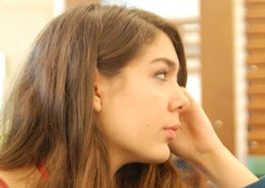Even though I never had the courage to define myself as a writer, being published in a newspaper has always been one of my dreams. Becoming a part of the Bilkent News family is the first step in finally fulfilling this lifelong dream, so I thought it would be best to share some of my personal experiences as an introduction. This summer, I spent ten days in Beirut, Lebanon, and returned back to Turkey with an indescribably great amount of cultural knowledge. I guess I can say that the new level of knowledge I have acquired is extremely valuable, and so my duty as a new "writer" for this paper should be to share it with as many people as I can.
When I was a child, my mind was clouded by a misconception that basically suggested I was closer to a Western-based cultural outlook than an Eastern one. As time passed, and as I started becoming more integrated into the unique beauties of my own culture, I came to understand the importance of fully knowing a nation's history, traditions and heritage. Nevertheless, there was a disturbing feeling that I carried with me for years: a sense of misplacement. It felt like something was missing. I can now say that even though I had previously been to Beirut three years ago, the ten days I spent there this August guided me to find the missing piece, and when I was on my way to the airport for my flight back to İstanbul, I knew that disturbing feeling had left my system for good.
Beirut is a beautiful city, inhabited by beautiful people. Even though the economic gap between the social classes there is nearly as drastic as in Turkey, Beirut is inhabited mostly by members of the middle and upper classes, and a great portion of these people are very well educated, intellectually curious and quite hospitable. I was there to visit a really close friend of mine who lives on Hamra Street, which used to be known as the center of intellectual activity back in the 60s and 70s and is now one of the most popular areas in Beirut, home to numerous bars and authentic coffee shops.
I'm pretty certain that it would take me pages to describe the whole city, since each restaurant and shop is worthy of being mentioned. The twist here is that, even though the city is physically astonishing, my "missing piece" wasn't discovered in the buildings or the streets; it was supplied by the people. And as surprising as it is, based on my experiences I find it much more appropriate to describe them in a few sentences, for I've learned that even pages and pages of articles, essays and books would never, ever be sufficient to reflect the cultural responsibilities and the unforgettable wounds the people of Lebanon have been destined to carry. The citizens of this nation are one of the few peoples in the world who are genuinely familiar with the concept of war. Some were born into war, some grew up with it, and some watched through the years as their homes and their land rapidly disappeared into the unknown and fell apart, leaving only a few remnants behind. Being a nation of war is one thing; being imprinted with the word "war" as a personality trait -- the way some of us are imprinted with a word like "selfish" or "kind" -- is another. The most important thing that I learned from every single person I met during my visit was this: the youth of a nation very similar to my own are, unlike my peers in Turkey, extraordinarily aware of their past and their present. Rami Zurayk, a professor of land and water resources at the American University of Beirut, and someone whom I consider a dear friend, once said: "There are no clean wars and no intelligent deaths, but civil strife certainly takes the prize for dirtiest and dumbest. Anything -- anything -- is better than civil strife."
